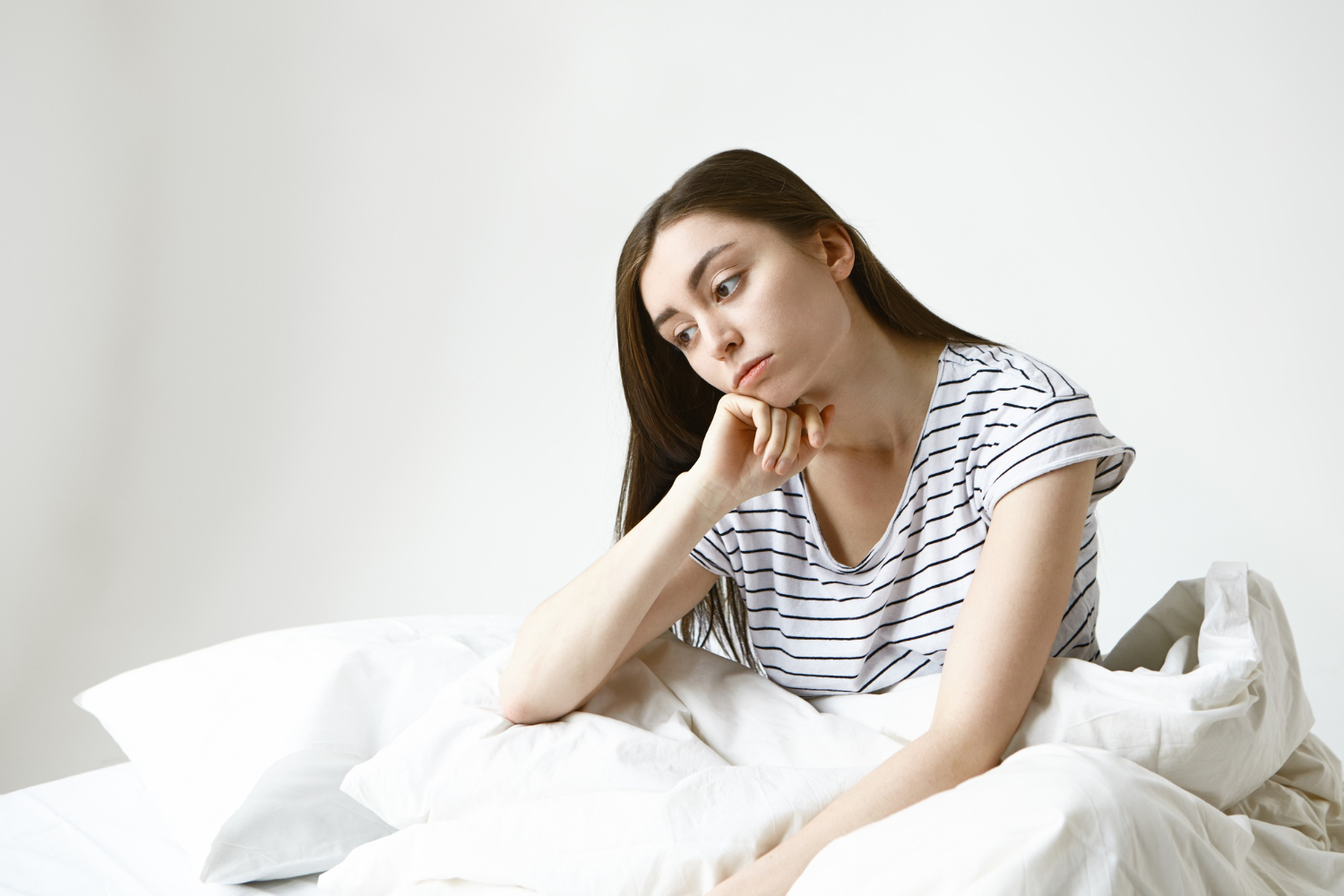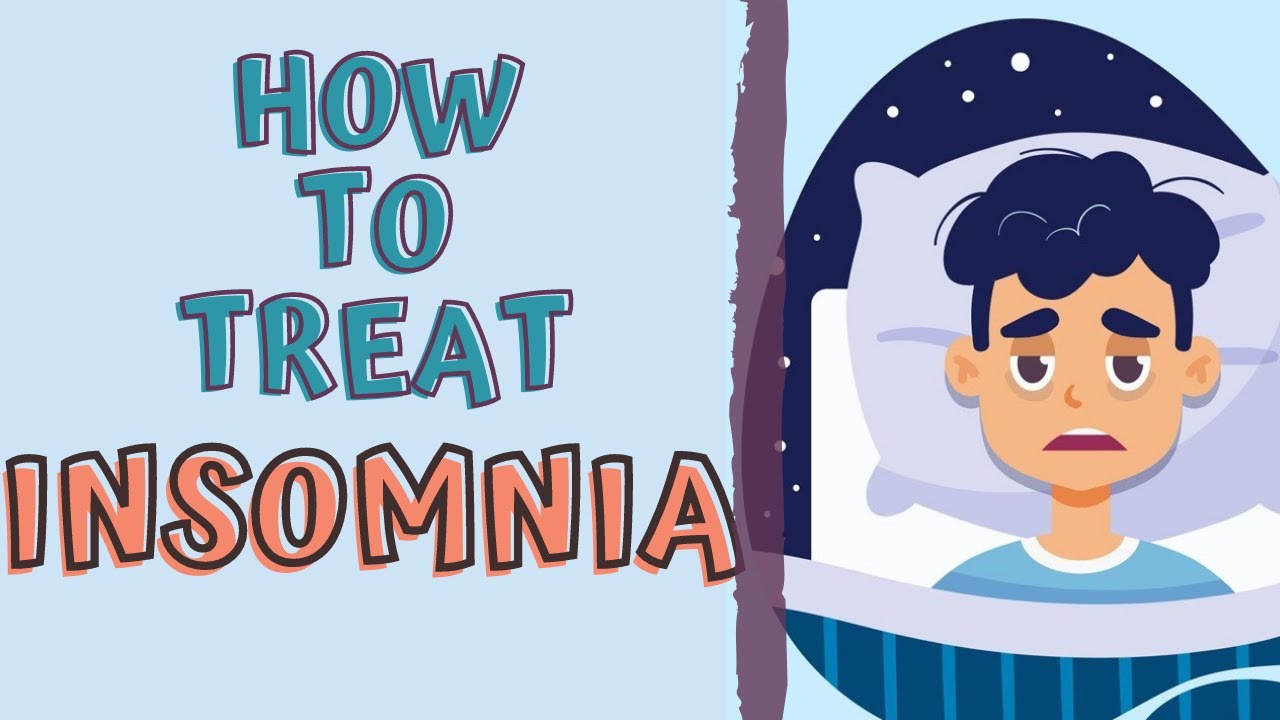Coping With Insomnia And Why Does It Happen?
Insomnia, often known as sleeplessness, is a sleep condition characterized by difficulty falling asleep, maintaining sleep, or experiencing restorative sleep. Sleep problems are often characterized as having trouble getting to sleep or staying asleep.
Author:Suleman ShahReviewer:Han JuFeb 01, 2023215 Shares2.8K Views

Insomnia, often known as sleeplessness, is a sleep condition characterized by difficulty falling asleep, maintaining sleep, or experiencing restorative sleep. Sleep problems are often characterized as having trouble getting to sleep or staying asleep.
About a third of the world's population has trouble sleeping. Insomnia is diagnosed when sleep problems fit a certain set of criteria. The importance of treating insomnia cannot be overstated, since it may have negative effects on one's cognitive performance, quality of life, and even lead to other healthproblems.
Types Of Insomnia
Insomnia is classified in many ways by medical professionals who have studied the disorder:
- Acute insomnia:It describes sleeplessness that lasts for little more than a few weeks.
- Chronic Insomnia:It persists for three nights or more each week, or for three months or more, is considered chronic.
- Onset insomnia:The inability to fall asleep suddenly is referred to as onset insomnia. Caffeine consumption, mental healthissues, and other typical insomnia triggers are possible causes, but other sleep disordersmay also cause difficulty falling asleep or staying asleep.
- Maintenance insomnia:Trouble falling asleep or staying asleep, or frequent awakenings throughout the night, are symptoms of maintenance insomnia. This kind of insomnia may be linked to physical and psychological problems, but worrying about not sleeping well may make it much more difficult to fall asleep.
- Behavioral insomnia of childhood:In children with behavioral insomnia, falling asleep is a persistent problem, or the youngster just refuses to go to bed. Self-soothing techniques and a consistent bedtime routine may help children with this condition sleep better.
Insomnia Causes
The most common causes of insomnia include:
- Significant life events, such as job loss or change, the death of a loved one, divorce, or relocation, may cause stress.
- Environmental factors such as noise, light, and temperature
- Changes to your sleep routine, such as jet lag, a new work shift, or poor habits you picked up when you had prior sleep difficulties, might cause sleep disorders.
- According to research, a propensity for sleeplessness may run in families.
Among the secondary causes of insomnia are:
- Mental disorders such as sadness and anxiety
- Cold, allergy, depression, high blood pressure, and asthmamedications.
- Nighttime ache or pain
- Usage of caffeine, cigarettes, or alcohol, as well as illegal drug use.
- Hyperthyroidism and other endocrine conditions
- Other sleep problems, such sleep apnea or restless legs syndrome
- Pregnancy
- Alzheimer's disease and other dementiakinds
- Menstrual symptoms with menopause
How To Prevent Insomnia
Good sleep habits, often known as sleep hygiene, may aid in the treatment of insomnia. Here are some tips:
- Every night, fall asleep at the same time and wake up at the same time. Try to avoid taking daytime naps, since they may make you less drowsy at night.
- Avoid using phones and e-readers before night. Their illumination might make it difficult to fall asleep.
- Late in the day, coffee, nicotine, and alcohol should be avoided. Caffeine and nicotine are both stimulants that may prevent sleep. Alcohol may cause you to awaken in the middle of the night and impair the quality of your sleep.
- Get frequent exercise. Avoid exercising close to bedtime, since it may be difficult to fall asleep. Experts recommend exercising at least three to four hours before to bedtime.
- Do not have a large dinner late in the day. However, a little snack before bed may aid with sleep.
- Make sure your bedroom is dark, quiet, and neither too hot nor too chilly. If light is a concern, a sleeping mask might be used. Use earplugs, a fan, or a white noise generator to mask noises.
- Follow a routine before bed to unwind. Listen to music, read a book, or take a bath.
- Do not utilize your bed for anything other than sleeping and having sexual relations.
- If you are unable to fall asleep and are not tired, get up and engage in a peaceful activity, such as reading, until you feel sleepy.
- Make a to-do list before going to bed if you have a propensity to lay awake and worry. This may help you set aside your worries for the night.

HOW TO TREAT INSOMNIA - Reduce Anxiety - No More Sleepless Nights
Insomnia In Children
Unfortunately, sleeplessness is just as common in children as it is in adults. Stress, drugs, excessive coffee use, and medical issues both mental and physical might all play a role. Your kid may have insomnia if he or she has problems getting asleep, remaining asleep, or wakes up at inappropriate times.
Insomnia may cause children to be irritable, moody, have trouble concentrating, and have trouble remembering things the next day, among other symptoms. In most cases, establishing and strictly enforcing a nighttime routine is the first line of defense against childhood sleeplessness.
You may also aid your kid by eliminating causes of stress in his or her life, developing a relaxing bedtime ritual, and practicing excellent sleep hygiene, such as limiting screen usage in the hours before bed. More information on how to treat children's sleeplessness may be obtained from a therapist or physician. Learn more about how you can improve your child's sleep.
Insomnia In Adults
Insomnia affects up to 75% of seniors, according to studies conducted in 2019. Insomnia in the elderly has several causes and may have a domino effect, including the following:
- The circadian rhythms, which regulate your sleep and waking times, might shift as you get older, making it more difficult to go to sleep or remain asleep.
- Sleeplessness is common among retirees since they often lack a regular daily routine and opportunities for social engagement.
- Loneliness, sadness, and sleep issues are all linked to a lack of social interaction.
- Sleep disruptions may also be caused by age-related health issues including persistent pain.
- Feeling sleepy and exhausted during the day is a common side effect of not getting enough sleep at night. In such case, you may feel like taking a sleep. Unfortunately, naps might make it such that you feel even less sleepy when it's time for bed.
Insomnia sufferers often benefit from further guidance in identifying and pursuing effective treatment choices from a qualified therapist or physician.
Homeopathy And Insomnia
Homeopathy is a drug-free, patient-centered therapybased on scientific research. Therefore, homeopathic remedies for insomnia might be helpful. Your specific needs and case historywill determine the best course of action. Because of this, homeopathy relies heavily on your in-depth case history.
Homeopathy is a kind of alternative medicine that relies on the use of natural remedies. On the basis of the "like heals like" concept, homeopathy may be an effective treatment option for insomnia. That is, the same thing that might bring on sleeplessness can also alleviate it.
There is a wide variety of homeopathic treatments for insomnia, and the one that works best for you will be determined by your specific symptoms. Homeopathic treatments for sleeplessness often include:
- When insomnia is accompanied by anxiety and restless legs, arsenicum album is a popular therapy.
- When babies or young children have trouble sleeping due to discomfort associated with teething or general irritability, chamomilla is a common remedy.
- When insomnia is the result of excitement or overwork, coffea cruda is a common treatment.
- Ignatia is a common remedy for insomnia brought on by emotional distress.
- Natrum muriaticum is a popular cure for insomnia due to jet lag or shift work.
Consult a professional homeopath for advice on homeopathic remedies for sleeplessness. They will carefully consider your unique set of symptoms before recommending a treatment plan.
People Also Ask
What Is The Cause Of Insomnia?
Stress, an inconsistent sleep pattern, poor sleeping habits, mental health issues including anxiety and depression, physical ailments and pain, drugs, neurological abnormalities, and specialized sleep disorders all contribute to the prevalence of insomnia.
What Are 5 Insomnia Symptoms?
- Nighttime difficulty falling asleep
- Awakening throughout the night
- Arising too early.
- Not feeling well-rested after a night's sleep.
- Daytime fatigue or drowsiness.
- The presence of irritability, despair, or anxiety.
- Having trouble paying attention, concentrating, or remembering.
- Increased incidence of mistakes or accidents.
How Can I Get Rid Of Insomnia?
- Every day, go to bed and wake up at the same hour.
- Take a bath or read a book at least one hour before to bedtime to unwind.
- Ensure that your bedroom is dark and silent; if necessary, use curtains, blinds, an eye mask, or earplugs.
- Daily physical activity is advised.
Final Thought
Women and the elderly are more likely to suffer from insomnia than males and younger adults. African Americans of all ages, but especially those between the ages of 15 and 45, are at increased risk.
Clinical testing and a thorough physical examination are used in the diagnostic process. Improvements in sleep quality have been linked to the practice of yoga, meditation, and deep breathing exercises.

Suleman Shah
Author
Suleman Shah is a researcher and freelance writer. As a researcher, he has worked with MNS University of Agriculture, Multan (Pakistan) and Texas A & M University (USA). He regularly writes science articles and blogs for science news website immersse.com and open access publishers OA Publishing London and Scientific Times. He loves to keep himself updated on scientific developments and convert these developments into everyday language to update the readers about the developments in the scientific era. His primary research focus is Plant sciences, and he contributed to this field by publishing his research in scientific journals and presenting his work at many Conferences.
Shah graduated from the University of Agriculture Faisalabad (Pakistan) and started his professional carrier with Jaffer Agro Services and later with the Agriculture Department of the Government of Pakistan. His research interest compelled and attracted him to proceed with his carrier in Plant sciences research. So, he started his Ph.D. in Soil Science at MNS University of Agriculture Multan (Pakistan). Later, he started working as a visiting scholar with Texas A&M University (USA).
Shah’s experience with big Open Excess publishers like Springers, Frontiers, MDPI, etc., testified to his belief in Open Access as a barrier-removing mechanism between researchers and the readers of their research. Shah believes that Open Access is revolutionizing the publication process and benefitting research in all fields.

Han Ju
Reviewer
Hello! I'm Han Ju, the heart behind World Wide Journals. My life is a unique tapestry woven from the threads of news, spirituality, and science, enriched by melodies from my guitar. Raised amidst tales of the ancient and the arcane, I developed a keen eye for the stories that truly matter. Through my work, I seek to bridge the seen with the unseen, marrying the rigor of science with the depth of spirituality.
Each article at World Wide Journals is a piece of this ongoing quest, blending analysis with personal reflection. Whether exploring quantum frontiers or strumming chords under the stars, my aim is to inspire and provoke thought, inviting you into a world where every discovery is a note in the grand symphony of existence.
Welcome aboard this journey of insight and exploration, where curiosity leads and music guides.
Latest Articles
Popular Articles